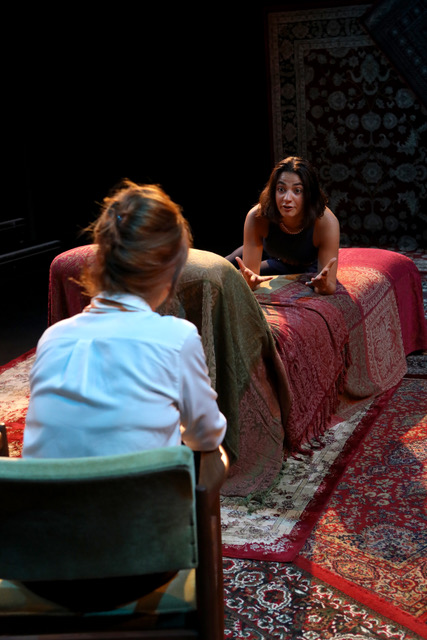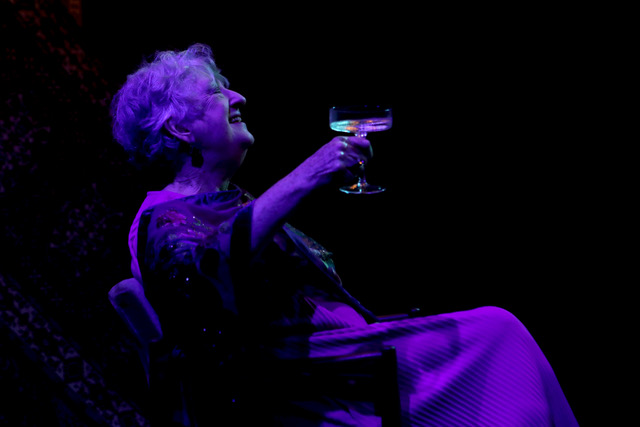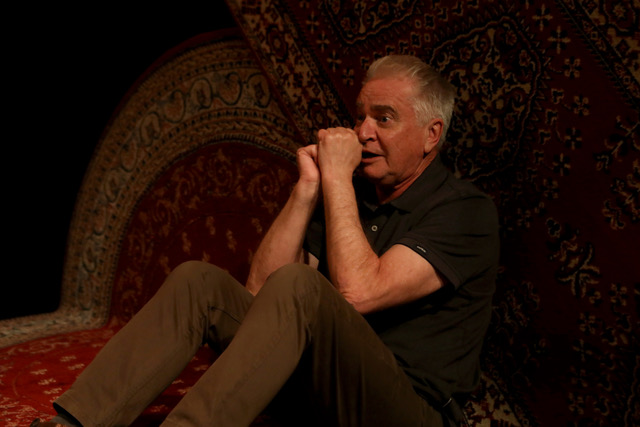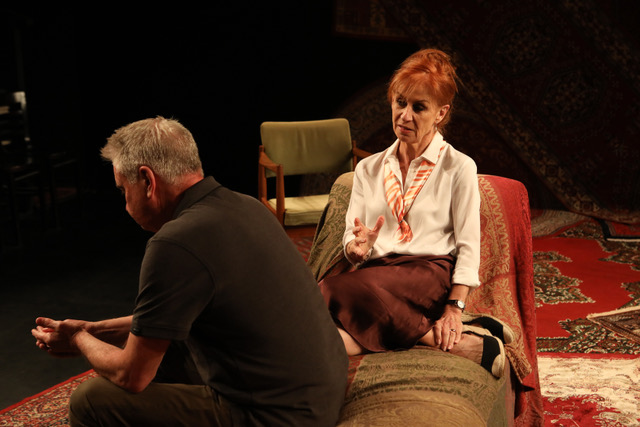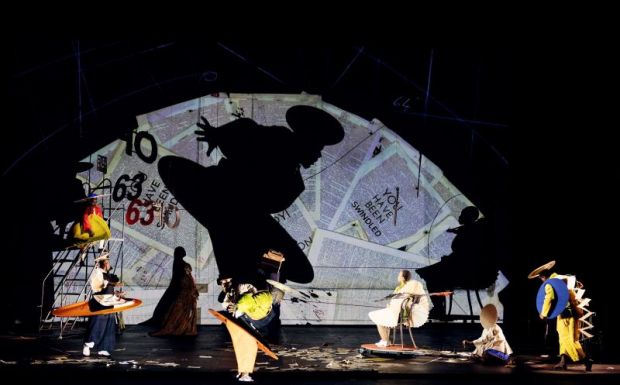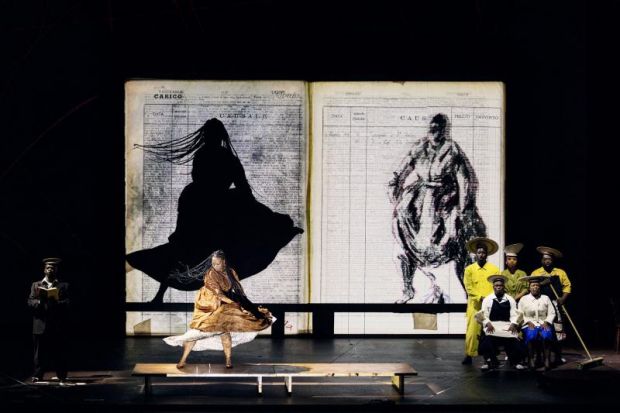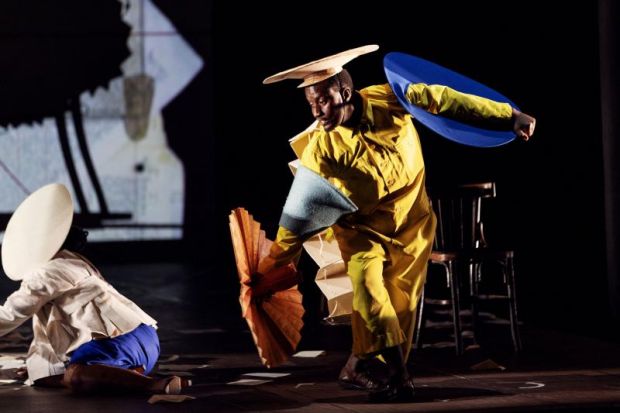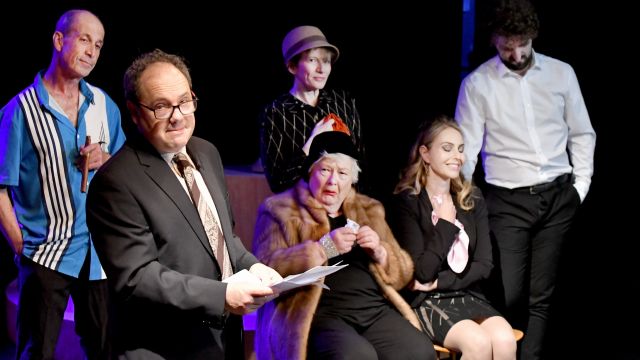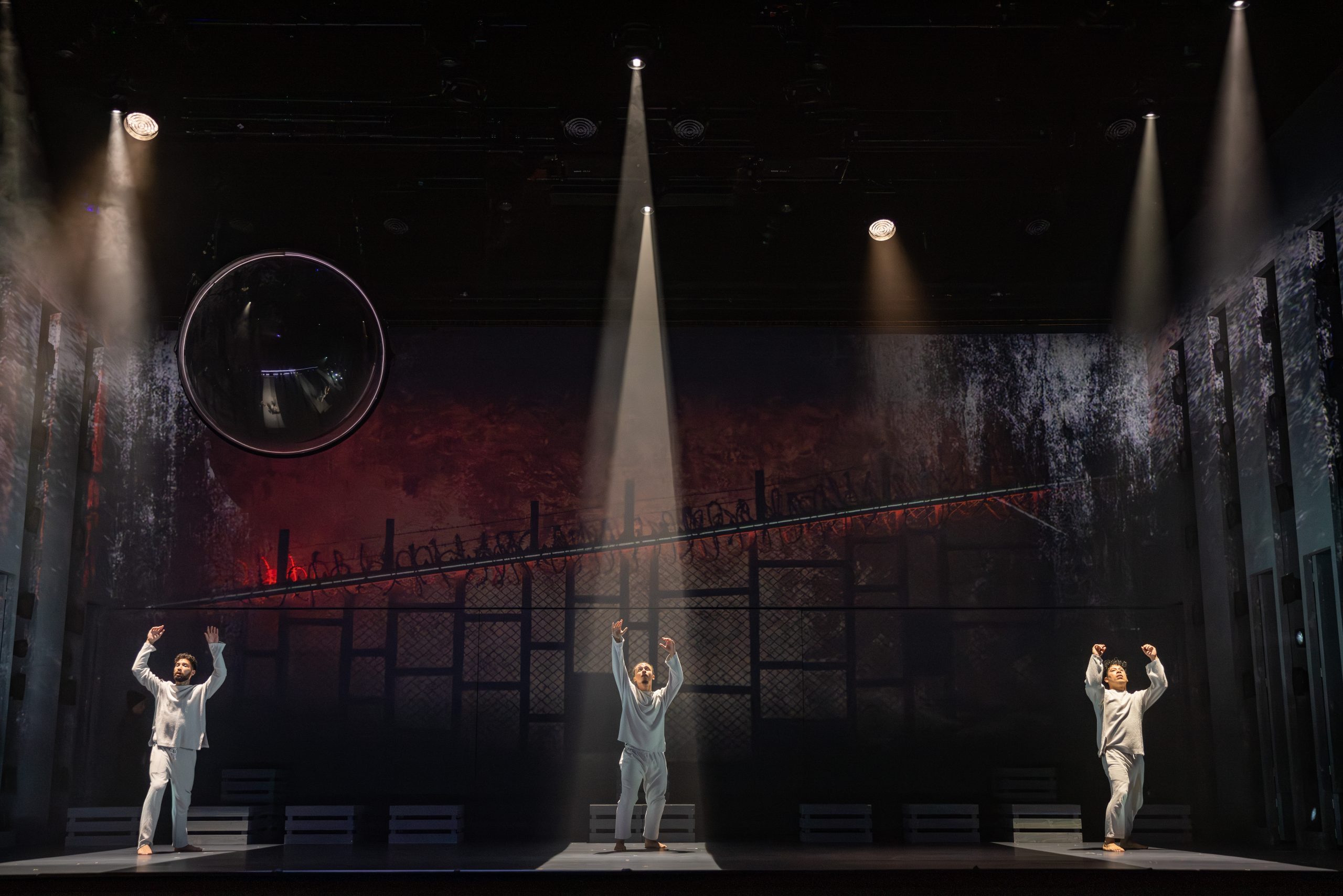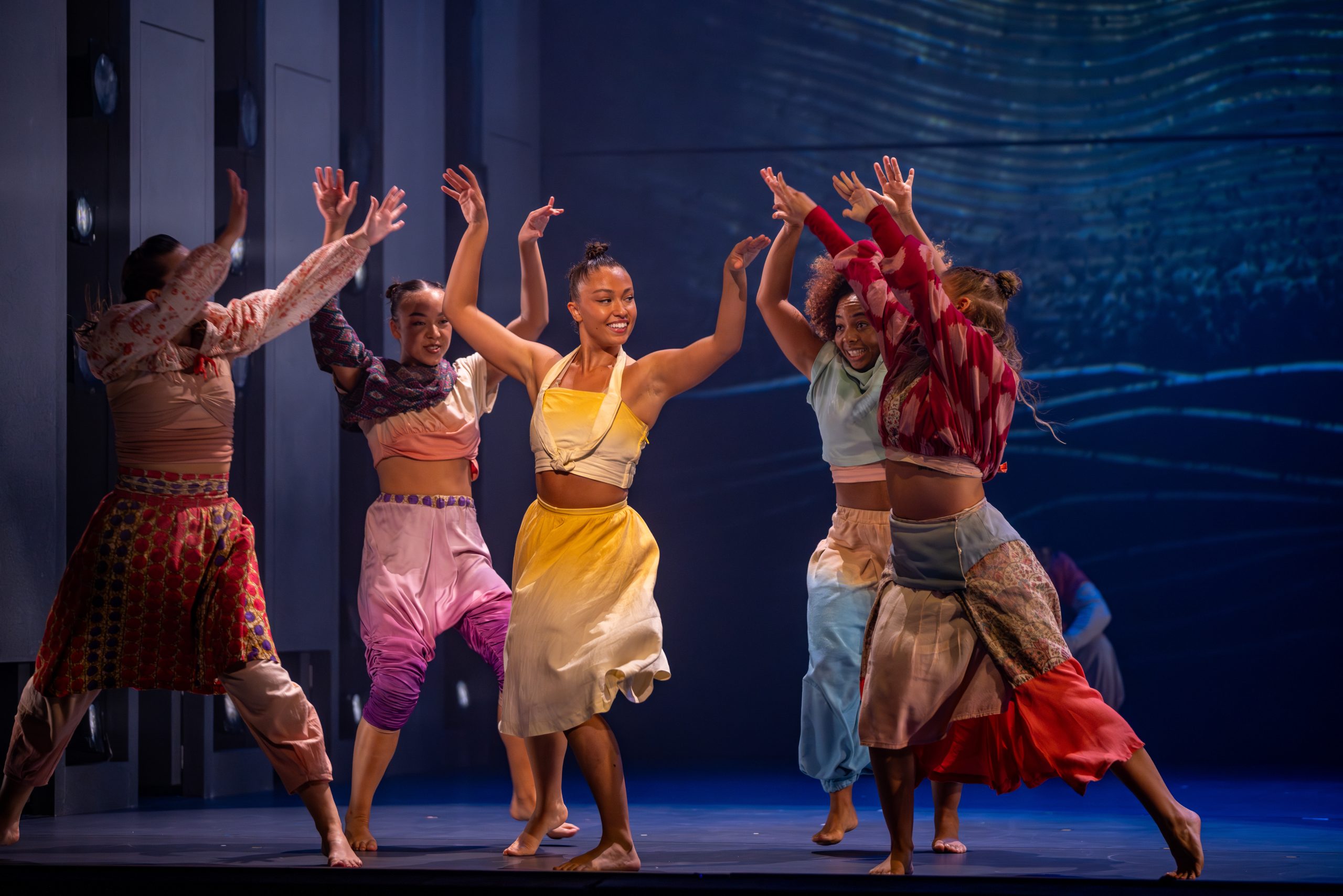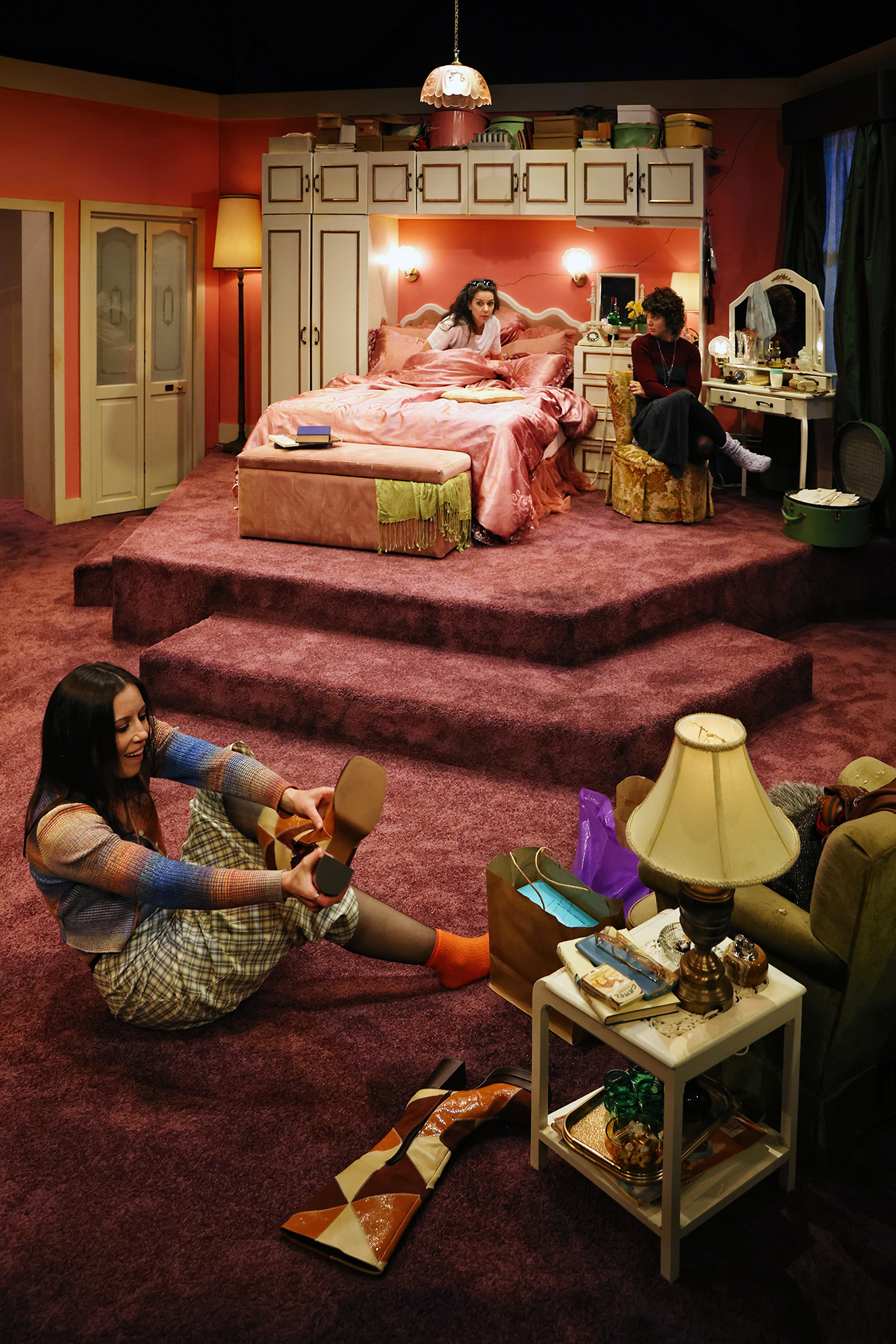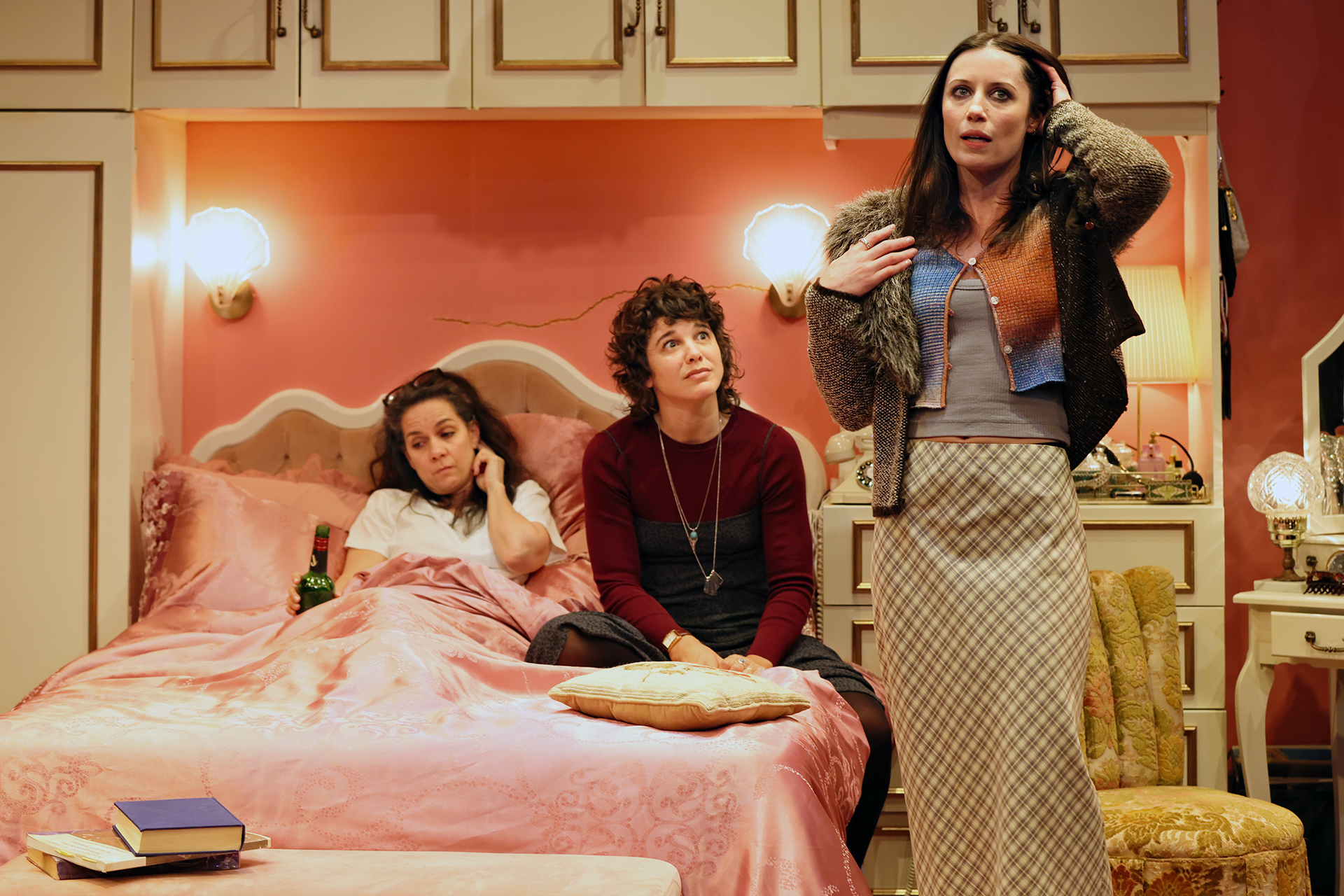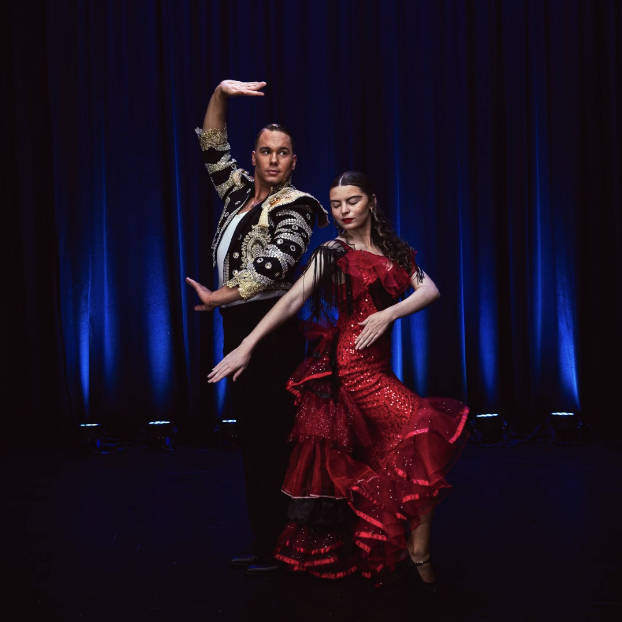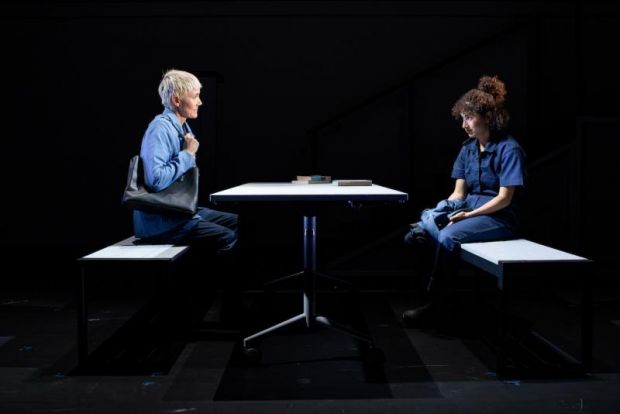By Jonathan Biggins and Drew Forsythe. Soft Tread Productions. Director Andrew Worboys. Seymour Centre. 8 November – 17 December, 2023 and touring.
Reviewed : 12 November, 2023
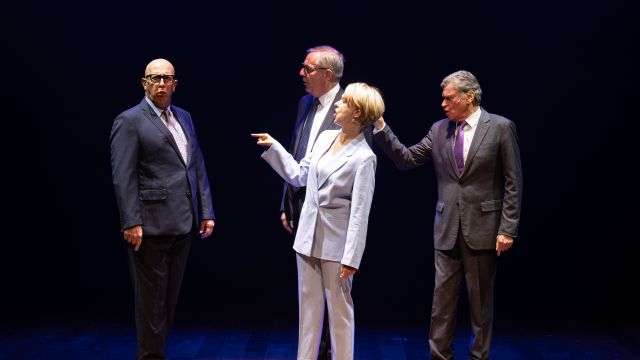
Jonathan Biggins and Drew Forsythe are looking back on another year with their usual perspicacious percipience, pertinent parodies and just a little poignant plaintiveness! They satirise prominent politicians with punchy pride, bi-partisan prejudice and intense irreverent irony. And if you find that little lot of alliteration laborious, imagine writing a whole sketch of it! In fact, imagine planning a program of sketches satirising people and politics – and performing them perfectly!
Ok! Ok! I’ll stop!
Deciding who and what to satirise must be tricky – deciding how to go about it even trickier. Because revues aren’t just ‘lampooning’. They are performances. Each sketch is based on astute observation and wise judgement. Each has a beginning, a middle and a clever end. Because the material is topical, it’s relevance is short-lived, so it must be written quickly. Because it’s political, it must be selected judiciously and written with wit, wisdom, and judicious restraint. Because it’s entertainment it must have variety, pace and universal appeal. Because it’s ‘revue’ it must also be funny!
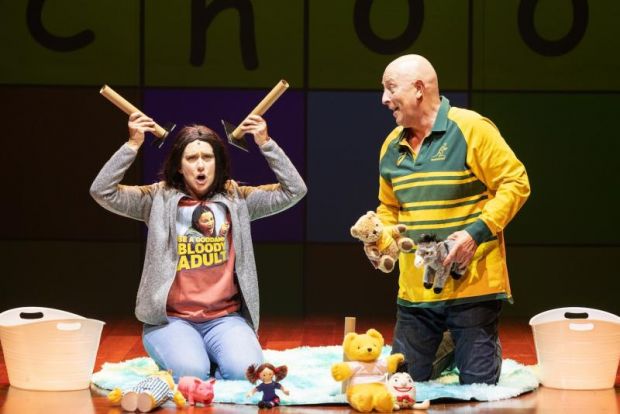
That’s a lot to ask, but Biggins and Forsythe, with Phil Scott, have been meeting all those requirements in their Wharf Revues for years. They choose their subjects shrewdly. They are astute, clever writers who know their audience, know what appeals, know how far they can go. They know the importance of variety in form and style and presentation. They also must be prepared to suffer the “slings and arrows” of outraged pollies, their follower … and critics.
Revues require skilled, experienced actors who can impersonate, create caricatures, make quick character and costume – and sing and dance! Biggins and Forsythe meet all those requirements, as do Mandy Bishop and David Whitney who join them in this 2023 revue, Pride in Prejudice. With Andrew Worboys in the director’s chair and at the keyboard, they take the audience on a risqué romp through the year, with nods to Canberra, Washington DC, Moscow and the South Pacific.

The production is precisely planned, meticulously rehearsed and performed with the energy, pace and clarity that is essential in the delivery of satirical material. Every word and note in satire counts. Every walk, stance and gesture is significant. Every character – and there are many – must be recognisable without being too offensive.
That said, Biggins, Forsythe, Bishop and Whitney perform a plethora of characters, beginning in true BBC “bonnet drama” style with a send up of Jane Austen. Biggins, as Mrs Bennet, delights with gems such as decrying the local priest, ‘Cannon Fodder’, offering “gluten free communion wafers”. It is a great start and the sketches that follow are many and varied, including …
A double spoof on the ABC’s Q&A and the musical “Avenue Q”, with puppets of Hannah Gadsby, Mark Latham and Peter FitzSimons fielding the questions. An excellent, energetic impersonation of Groucho Marx singing a parody of “Lydia the Tattooed Lady” to Senator Lidia Thorpe, and David Marr leading a biting “Livid Festival” discussion on Robodebt.
Coming under fire were the lack of ladies in the coalition, the intricacies of the Westminster System, and government inaction on numerous issues.
Donald Trump and Rudi Guiliani appear sporting prison stripes and chains; the late Queen appears in a dream to Charles Rex; and Costa Georgiadis decries every pesticide imaginable and their effect on a sad list of extinct species.
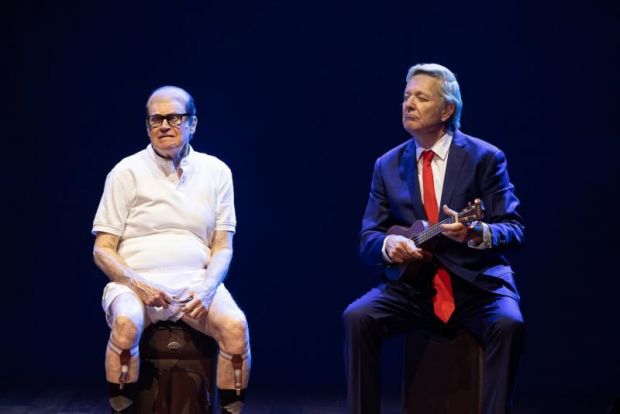
Serious moments such as that are special in the work of these writers. This year, as well as the environment, it is the Referendum that brings a serious hush. Sung to the tune of “Bad Moon Rising’, Forsythe’s tribute to the lost Voice is moving in its words and haunting harmonies.
The Revue wouldn’t be the same without a parody on a musical. This year, predictably, it is South Pacific, starring President Biden, Caroline Kennedy (both beautifully caricatured!) and a diplomatic adviser who elucidates alliteratively!
Congratulations to Biggins and Forsythe. Their selection of topics and clever writing continues to amaze and amuse. Congratulations to all five performers on a performance that, as always, is fabulous, fast, funny and facetious.
Also published in Stage Whispers magazine
The Wharf Revue: Pride in Prejudice also tours in 2024 to:
-
-
- Illawarra Performing Arts Centre, Wollongong: January 30 – February 3
- The Pavilion, Sutherland: February 6 – 7
- Capitol Theatre, Tamworth: February 9 – 10
- Union Theatre, University of Melbourne, Carlton: February 13 – 24
- Cessnock Performing Arts Centre, Cessnock: February 27
- Riverside Theatres, Parramatta: February 29 – March 2
- Queensland Performing Arts Centre, Brisbane: March 5 – 9
- The Arts House, Wyong: March 12 – 13
- Glen St Theatre, Frenchs Forest: March 14 – 28
- Dubbo Regional Theatre: April 3
- Civic Theatre Newcastle: April 5-6
- Adelaide Festival Centre: April 8 – 13
- The Glasshouse, Port Macquarie: April 16 – 17
- Orange Civic Theatre: April 19 – 20
- The Round, Nunawading: April 23 – 24
- The Joan, Penrith: May 2 – 4
-
